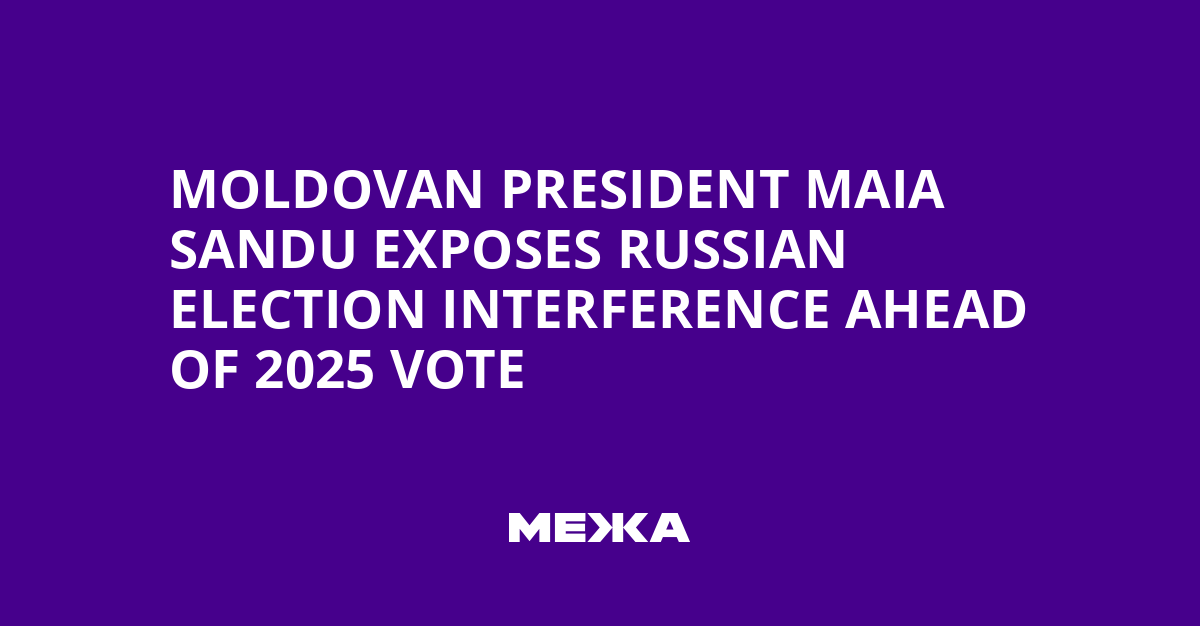The President of Moldova, Maia Sandu, said that Russia has expanded its interference in the parliamentary elections scheduled for September 28, 2025, reaching voters abroad. According to Sandu, Moscow has stepped up its online misinformation campaign, notably against the Moldovan diaspora. She also accused Russia of using Orthodox priests to spread propaganda and launching a network of bots called “Matryoshka” to create fake content under the guise of legitimate foreign media.
According to authorities, Moscow is refining its tactics: criminals on Moscow’s payroll provoke unrest and attempt to undermine trust in the electoral process. Similar campaigns previously led to the spread of false reports about irregularities at polling stations abroad, notably in Europe.
Context and challenges for Moldova’s democracy
Assessments by the country’s security service indicate that Russia spent about 1% of the country’s GDP on interference in previous elections. Sandu also stressed that Russia’s tactics are evolving: for provocations they use people who are on Moscow’s payroll to incite unrest in the country.
Russia uses a really wide range of tools in its efforts to undermine our institutions. I want the EU to learn from our experience. Moldova is a fragile democracy, but we see that some of Russia’s actions in Moldova are later exported to other countries. We must not underestimate the danger to our democracies
– Sandu
The President also emphasized the pressure the country feels from Russia, and stressed that EU integration remains the only path to preserving democracy. She urged citizens abroad to stay vigilant, unite, and defend Moldova’s sovereignty and European orientation.
The statements also referred to concrete signals such as security threats during the upcoming elections: Sandu spoke of Russia’s readiness for unprecedented interference, and local media noted investments in mechanisms to promote candidates and destabilize Moldova’s democratic processes.
According to the national security adviser, Moscow is intensifying its influence on Moldovan citizens across Europe, particularly through the renewal of the “Matryoshka” network, which creates fake media and spreads disinformation. In August, Sandu warned the diaspora about extraordinary pressure from hostile forces ahead of the parliamentary elections.
The Moldovan government continues to work on strengthening information hygiene, cybersecurity, and legislative mechanisms to ensure fairness and openness of the upcoming parliamentary elections and to support the country’s stability.
